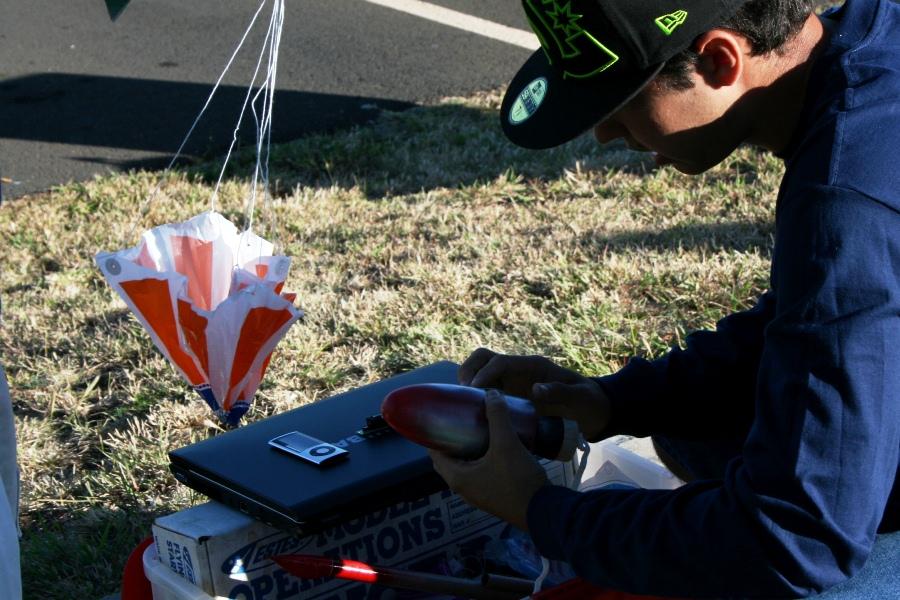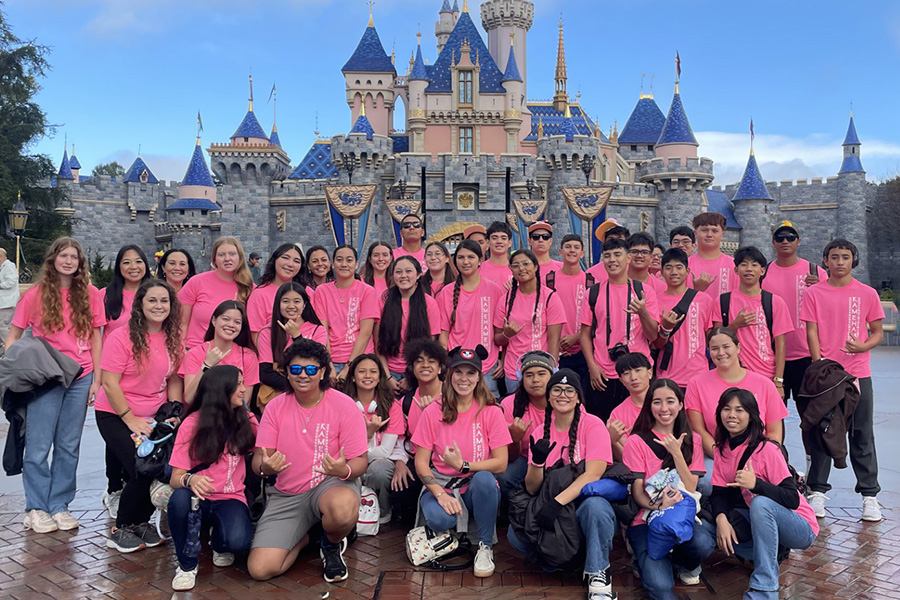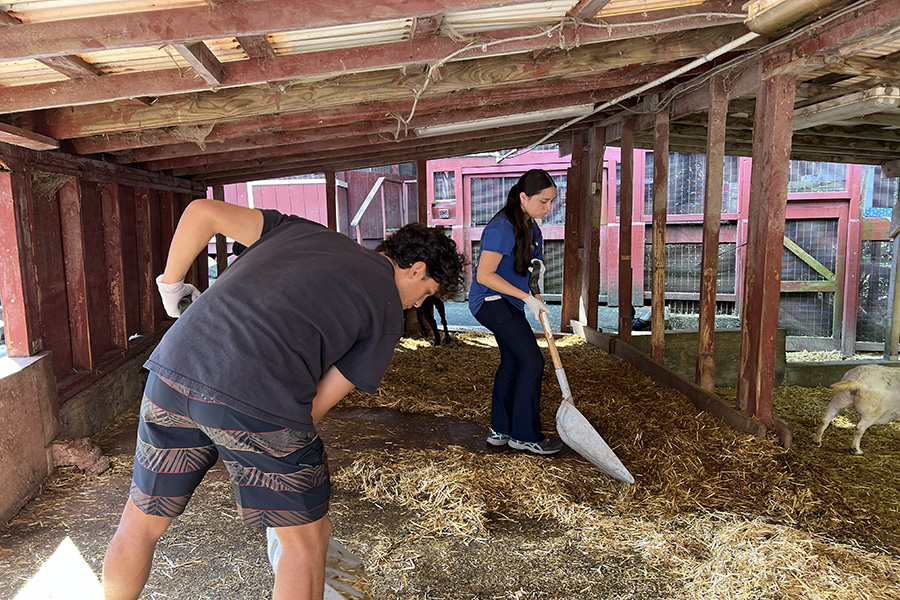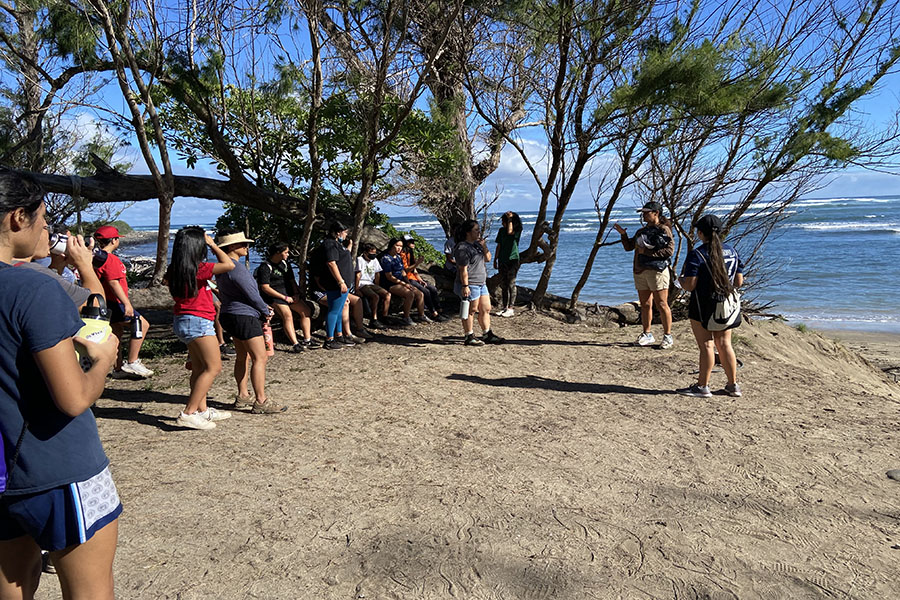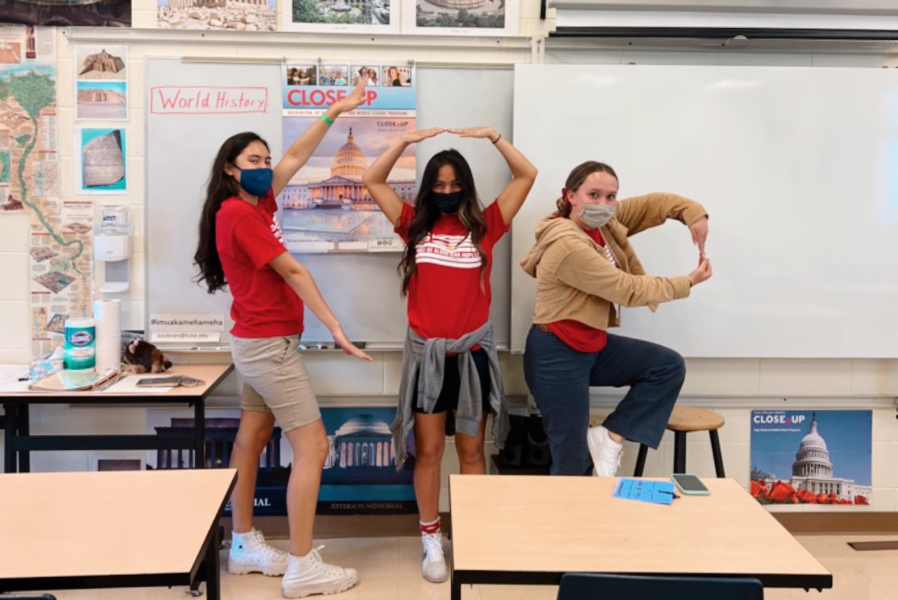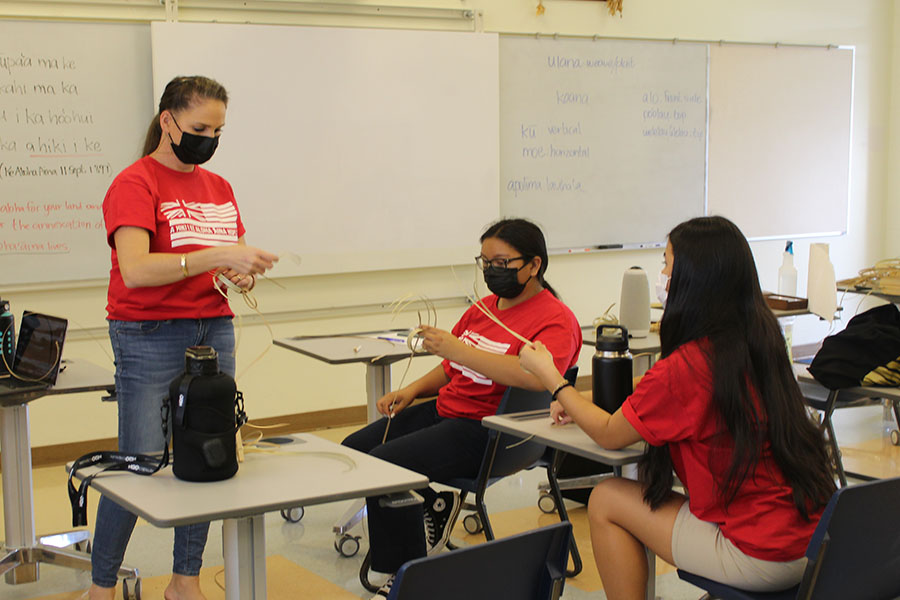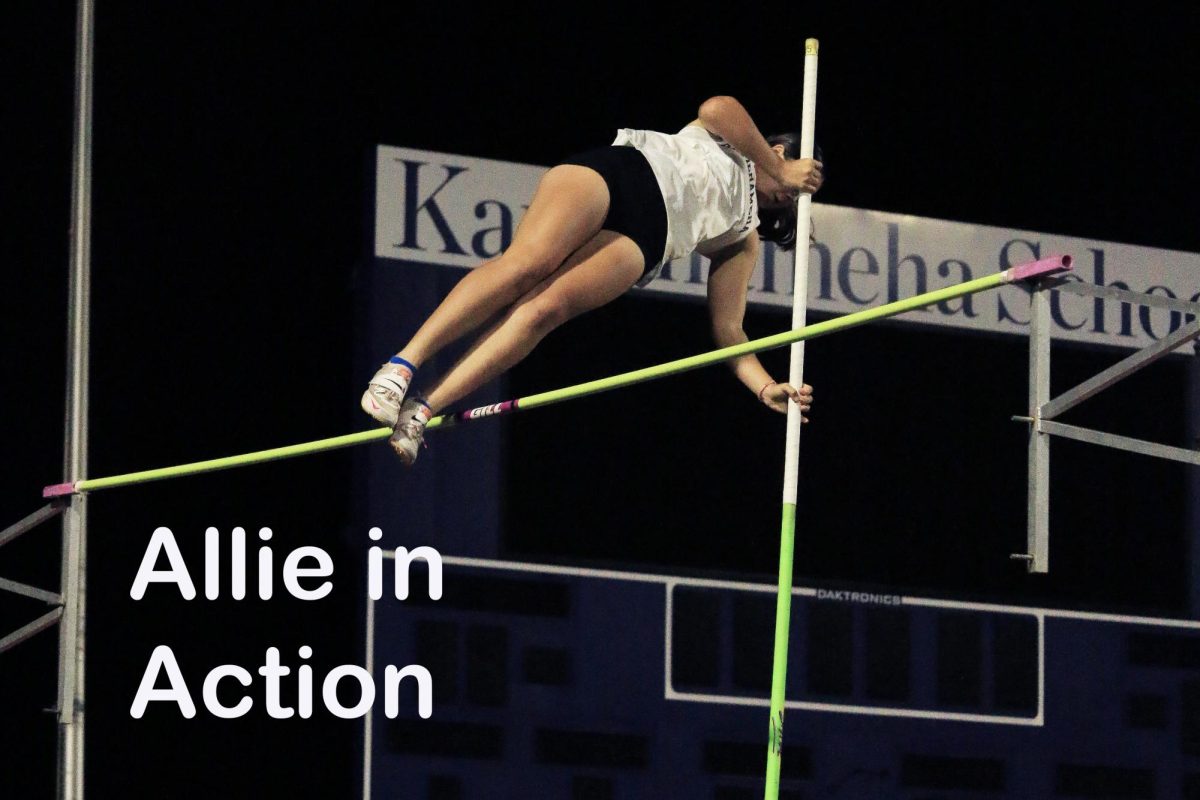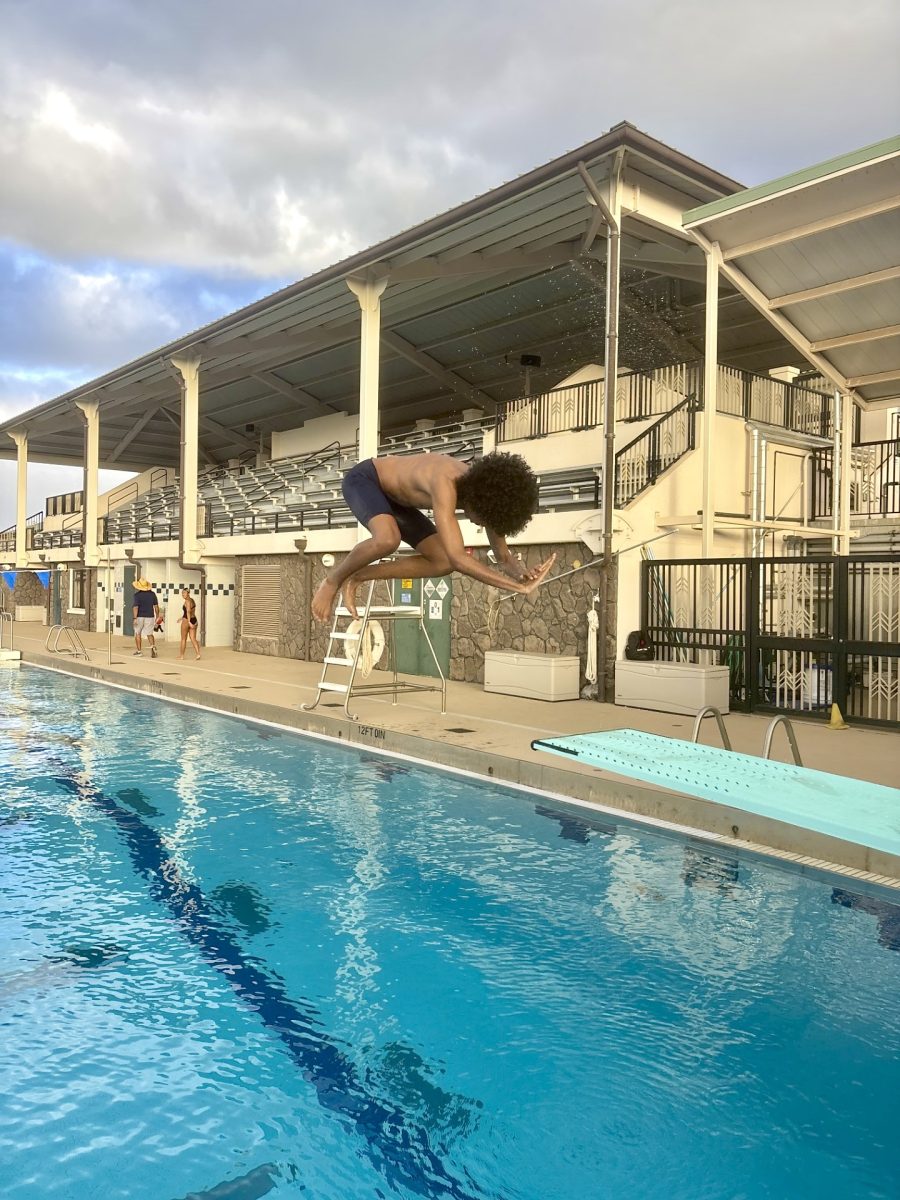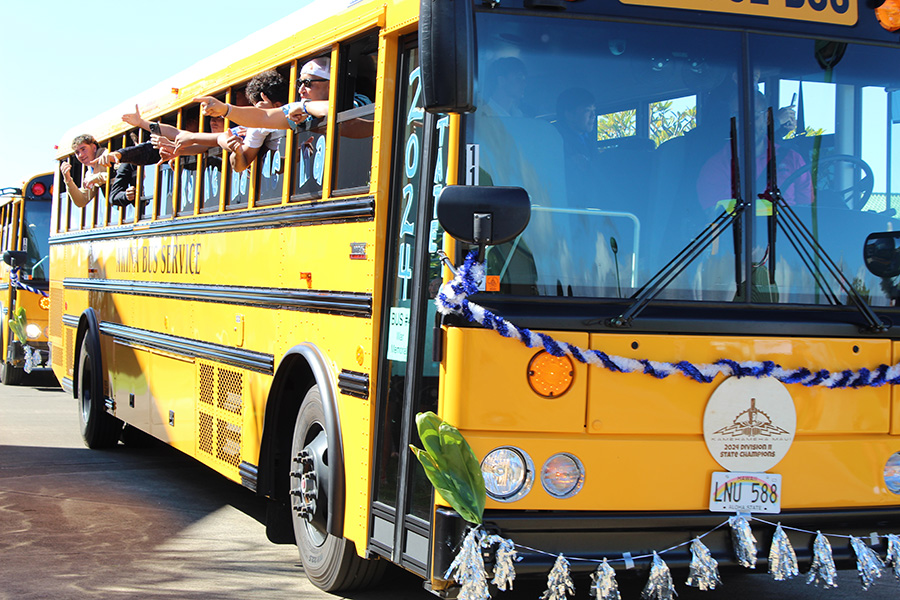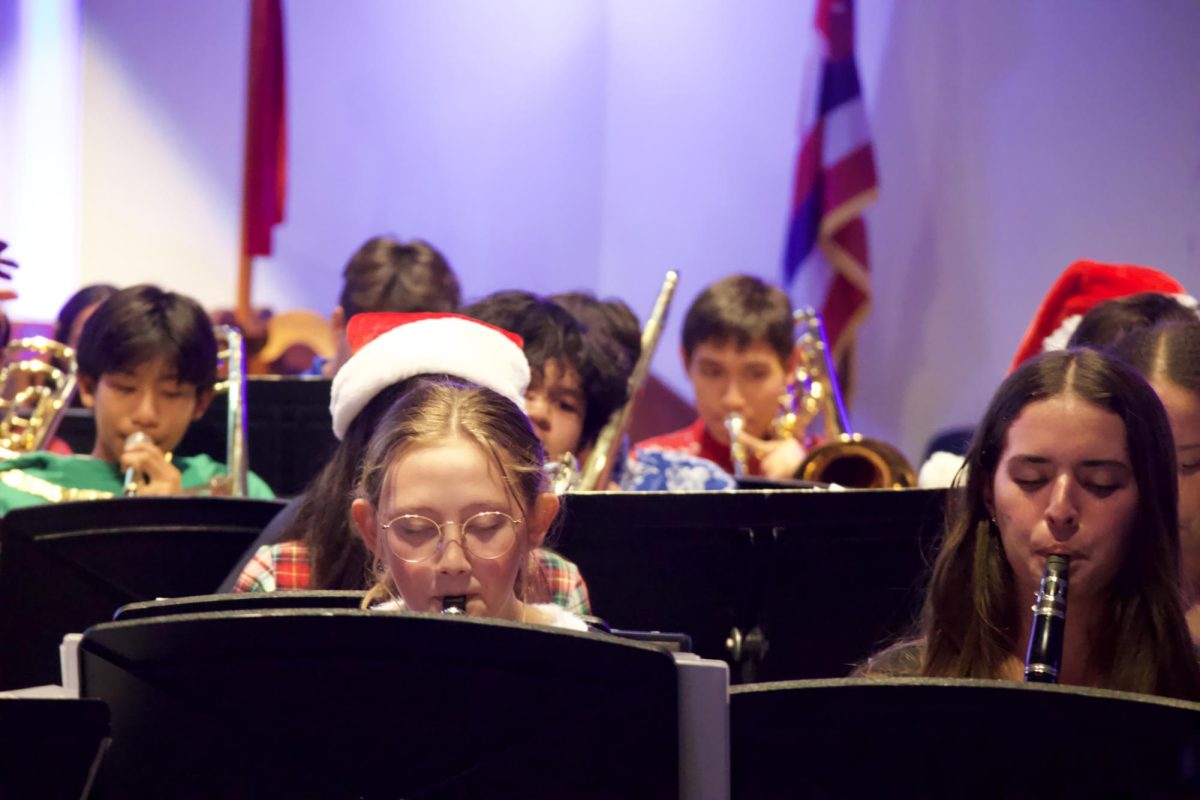Juniors Makai Mann, Daniel Mendiola, Michael Gorman and Corey Tanaka were up for a challenge – the Team American Rocketry Challenge with the help of Mr. Greg Lopez, their senior project adviser, and Mr. Richard Harris, their mentor.
Today, April 2, three of the boys gathered at the Kamehameha Schools Maui high school parking lot to put a month of work on a model rocket to the test.
“I saw this as a potential senior project and a great opportunity,” Gorman said.
The TARC competition requires its competitors to build a rocket that is under 2 pounds, reaches a minimum height of 750 feet, keeps a raw egg inside the rocket safe, and has a flight time of 45 seconds.
The team went through two trials. In the first trial, their flight time was 35 seconds, 10 short of the requirement. The second flight time was 28 seconds, only about half of their benchmark.
“I think the reason we didn’t get enough flight time and height was because our motor was too small,” Mann said.
Despite their shortfalls in flight duration, their rocket kept the egg safe.
Their model rocket was well within the maximum 2-pound restriction, weighing only a pound.
They said the rocket was top heavy because the egg, wrapped in plastic wrap and foam, was inside a padded shell that acted as the nose cone. The shell was also attached to a parachute to reduce damage from impact with the ground.
Because their altimeter malfunctioned in the first trial, they were only able to get a height reading for their second launch. An altimeter measures the maximum height of the trajectory by taking air pressure readings on the rocket. The readings are then converted to a graph.
Their graphs showed the rocket reached about 254 feet, but the boys estimated that their first launch had reached approximately 355 feet.
“I’m just glad that the egg survived!” Mendiola said.
Even though they weren’t able to qualify to move on in the competition, they felt that the rocket launch was a success.
“It was a success, considering it was our first time, and we had a late start,” Mann said.
The group said that they owed a lot of their success to their friends who also helped in the creation of the rocket – Juniors Sonya Donohue, Jarred Pulido and Matthew Spenser.
The team plans to learn from this experience and come back in the summer ready to win.
According to the contest sponsors, the Aerospace Industries Association and the National Association of Rocketry, the Team America Rocketry Challenge is the “world’s largest rocket contest.” More than 7,000 students have competed annually for a share of the cash and scholarship prize, $60,000 split between the top 10 finalists.

